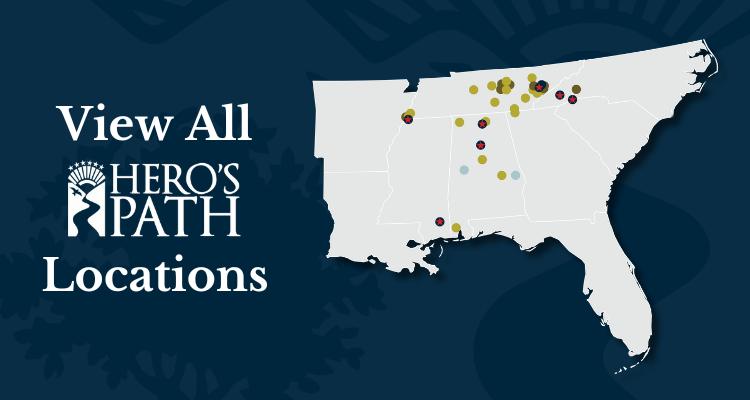When a veteran is struggling with addiction, it’s not just a challenge they face alone. Like a ripple effect, addiction touches every member of their family. While many families want to help their loved ones, they don’t know how or where to start. But there’s hope. Many different resources are available to those who know where to look.
Addiction: A Family Issue
First, it’s crucial to understand that addiction is a disease, not a choice or a lack of willpower. Just like diabetes or heart disease, addiction requires medical treatment, support, and lots of understanding. For veterans, who often face tough situations most of us can’t even imagine, addiction can start as a way to cope with stress, injuries, or memories from their service.
This disease can change a person’s behavior, leading to difficulties in their relationships, work, and health. The symptoms of addiction manifest in forms that especially affect family members. A change in personality, loss of job, and trouble with the law are only a few of the ways addiction can affect the whole family. These issues bring about stress, sadness, and conflict. However, when families learn about addiction—recognizing it as a disease—they can shift from blame to support, changing the recovery journey’s direction for their loved one.
Learning Together: A Path to Healing
Knowledge of addiction is extremely important for not only the patient but their families as well. Understanding addiction as a disease helps families see why recovery can be so hard and why it’s not about simply choosing to stop. By learning about the challenges veterans face during recovery, families can become strong supporters, offering the love and encouragement that is crucial during this time.
Studies show veterans have a better chance of success when families are involved in recovery. For example, a report from the Substance Abuse and Mental Health Services Administration (SAMHSA) suggests that strong family support can significantly improve outcomes in substance abuse treatment programs. This involvement can range from participating in counseling sessions to simply being there to listen without judgment.
Starting the Learning Process
Family members can help their loved ones in many ways. The amount of information and ways to help may even be overwhelming for some. Educating oneself is one of the best ways to begin the process.
1. Attend Family Therapy Sessions: Many treatment programs offer family therapy, which provides powerful tools for healing relationships and learning together.
2. Participate in Support Groups: Groups like Al-Anon or Nar-Anon provide support for families of those with addiction, offering a space to share experiences and advice.
3. Use Online Resources: Websites from reputable organizations like SAMHSA, the National Institute on Drug Abuse (NIDA), and the VA have tons of information about addiction and recovery.
4. Read Books: Many brilliant books on addiction and recovery offer families insights and strategies to support their loved one while healing themselves.
How Family Can Make a Difference
Once educated, family members can have a deeper impact on their loved one’s recovery. They play a key role in the recovery process in several ways. Here are a few steps to start:
1. Encourage Treatment: Sometimes, veterans might be hesitant or fearful of seeking help. The family can encourage them to start treatment by offering to help find a program.
2. Be Patient: Recovery is a journey with ups and downs. Showing patience and understanding during tough times can provide the strength a veteran needs to keep going.
3. Communicate Openly: Keep the lines of communication open. Letting someone know they can talk about their feelings without fear of judgment will provide relief and confidence in recovery.
4. Support Healthy Habits: Encourage activities that promote wellness, like exercise, good nutrition, and hobbies. Participating in activities together can strengthen bonds and provide positive experiences outside the recovery process.
5. Set Boundaries: It’s important to set healthy boundaries to protect oneself and other family members from the harmful effects of addiction. Healthy boundaries may include establishing rules about substance use in the house or how money is spent. Boundaries help reduce harmful conflicts and create a safe environment for everyone.
By being involved in these ways, families increase the chances of successful recovery for their loved ones and begin to heal themselves. They turn a challenging situation into an opportunity for growth and deeper connections.
The Importance of Family Support
Addiction recovery is tough, but with the involvement and support of family, veterans have a much stronger chance of success. By learning about addiction, offering unwavering support, and working together as a team, families can help their loved ones rebuild their lives. Remember, you’re not alone in this journey. Resources and communities are ready to help you and your loved one through recovery. Together, you can face the challenges and celebrate the victories, one step at a time.






